- Home
- Andrew Wareham
A Place Called Home (Cannibal Country Trilogy, Book 2) Page 13
A Place Called Home (Cannibal Country Trilogy, Book 2) Read online
Page 13
That was simply crazy, they thought. If the Governor did not know by now that some clans were much superior to others then he had to be both blind and stupid. There were Tolais and there were savage bush-monkeys - surely Master Ned at least had noticed this?
Master Ned had not seen it to the extent that they suggested, though he had not, perhaps, travelled into the bush in recent years. He promised that when next he went into Rabaul, or flew down to Moresby, he would talk with the proper people.
The Administration did not want to know.
"Bloody councils have caused enough trouble in India, Ned. This damned Congress of theirs is calling for independence now, and if it had not been for councils they would never have got hold of the idea!"
"It ain't going to go away, you know. Some of the villages have got wirelesses now, you know, sir. They hear all sorts of ideas from outside - no stopping them."
The Secretary shook his head; wireless sets and batteries and pedal-powered chargers were beyond him, and he would have hoped too complex for the villages.
"How did they get hold of the bloody things, Ned?"
"Chickens, as I understand it. A couple of young volunteers at Vunapope had the idea that a few hundreds of chooks would be a good idea - eggs and meat for the sick in the hospital to add to the tinned fish and rice. So they brought up good laying birds from down South, rather than the scraggy local objects. Worked a treat! Took a couple of years and they had thousands of the bloody birds, and the locals took eggs to their villages and soon enough they had a load of them too and they began to sell a few into Rabaul, at the market, chickens and eggs both. One of the young Chinese men saw there was money floating in the villages and bought in wireless sets cheap from Singapore and damned soon every village had got one. No problem at first - they would be listening to the music and singing and dancing of an evening - good thing too. But, you know how it goes, they hear the news as well, and then they listen to other sorts of programmes and next thing you know they're learning about politics."
"What's to be done, Ned?"
"Give in to them, sir. There's no choice that I can see. If we don't offer them more than they want then they will go to war, one day. They ain't even thinking of fighting at the moment. But they will, one day. What about recruiting more of them as policemen, and then promoting the best, making them officers? Give them a thirty year career and by the time they're fifty they will be high up, some of them, and then they'll retire and come back as village leaders. They would sit on their council, bound to, but they wouldn't be troublemakers - they would work with us for them. Policemen are loyal - you can't be a copper without being one of the Force."
It was a dangerous idea - an officer was by definition a white gentleman; very few ordinary Diggers ever became officers of any sort and Ned was proposing that black Tolai should be given the status. Perhaps, the Secretary thought, he was not entirely the right sort himself.
Ned drove back to Vunatobung aware that he had transgressed; it was a pity in some ways, perhaps.
"Sod 'em all, Jutta! I'm a dock rat driving a Rolls Royce! I know whose side I'm on! Mine!"
The tracks up into the Highlands on the New Guinea Side grew busier every year. Explorers moved inland to discover a population of some millions - how many was a matter of guesswork - who were rapidly using up all of the available land. They brought in Western medicines and gave away bully beef and tinned fish and the death rate among the children plummeted. The inevitable result was an increase in migration - more youngsters marched out of their villages and flocked down the paths to Lae, and to a lesser extent to Madang and Wewak. When they got to the towns they made the old discovery - the streets were not paved with gold.
They also found there was no work and that the locals wanted all of their own land. They could neither earn food nor grow it, so many turned to crime, or so it was called. In the villages they had grown up in it was normal to share everything and they could not quite understand how it came about that they could not take their fair share of the wealth they could see in the big city. Additionally, there was the question of just what was the status of so-called human beings who did not belong to their own clans. Back in the village the answer was simple - us and them. In the towns many thought the same way.
There was an upsurge in theft and violence accompanied by the first growth of squatter settlements which were wholly outside the law.
The business community met and demanded action of the Administration.
They formed a committee to lobby the Governor and George found himself to be a member, not particularly of his own seeking. Mick pushed him forward, cynically.
"You are the right bloke for this, George - think about it, mate. You're born up here, and there ain't many of us can say that. Your old man's got money and a name. You are known as well, in your own right, mate - 'the Digger what walked out'. I can't be seen in anything like this - I'm no more than an old poofter who got away from New South Wales; I shout me mouth off and I could find meself on a plane going South to a warm welcome."
"Right enough, Mick. But what do we want? The blokes at the meeting all said it was a bloody disgrace - but they didn't have much to say about what was to be done."
Mick shrugged - he did not think there was anything to do, other than build high fences and employ their own guards.
"Right, then. Guards - more police as well. If we are to hire on watchmen then the Territory must pay for extra coppers too. As well as that, better to have handouts of food. If they starve then they'll fight for food - and we'll be the ones they go for. We'll chuck money in the pot if the Administration will add more, do you reckon, Mick?"
"Speenhamland, George."
"Same to you, mate! What's one of them?"
"Ignorant git! The system in England a hundred years ago - handouts of bread and cheese that just got more expensive every year until half the bloody country in the farming areas was on the dole. Ended there because they had factories for the people to go to, and America and Australia to escape to. We got no jobs and no place for them to go."
"No answer then."
"There ain't no answer, George. There's too many people in a poor country. They'll have to die, or be kept on charity."
"Prisons and police, then. Feed 'em and then slap the poor buggers down. No choice."
"You'll need the rope as well. Hang a few dozen and they'll be less inclined to crime while they can beg instead."
"That's bloody rough, Mick!"
"She's a rough old world, George."
The Administration agreed, reluctantly, that there was no choice.
A new prison was built with an area of garden land for the prisoners to work on and feed themselves. Prison warders were employed and a great play was made of building a gallows. It had no effect at all on the crime rate.
Every private firm, and every household with money, erected tall fences and set men to guard them night and day. That was more effective inasmuch that the criminals were forced to prey only on their own people in the shanty towns - but they were out of sight and could be ignored.
The firms were forbidden guns, but the blind eye was turned to guards carrying axes, spears and bows - these were traditional and were probably used for hunting only, so the Administration said. They pointed out that the New Guinea Side was a mandated League of Nations Trust Territory rather than an actual colony, and that placed legal limitations on the British government which probably actually held the mandate, though it refused all responsibility for the Territory. The Australian Army could play no part in the country, and there was no desire in any case to see the kanakas carrying guns which might one day be turned to revolution.
It was a mess, and general opinion was that it could only grow worse in the towns.
George made his regular visit across to his parents, mentioned the problems and wondered what the future might hold for them.
"Good question, nipper. I don't know if it holds any for us up here. Best we should make sure we got
somewhere to run to."
"Buy a business down South when you're there next?"
"All of that. You ever hear of a Ridgeback?"
"Some sort of Abo, old man?"
"It's a dog! Big, bloody powerful and easy to train. Loyal as they come. Two of those sitting in your garden in the night and you won't see any bastard breaking in."
"Where do you get them? Do you know of a breeder?"
"Saw them in Cairns, couple of years ago. Jim, bloke I knew before the War, runs a boatyard there, he's got a couple. I shall be talking to him next time we're down South. I dropped him ten thousand as a loan, seeing as how times were so bad - secured against the business, of course. He's written up that things are a bit better now and he could pay me back, but how would I fancy buying in for fifty per cent instead. Good idea to get the money down South working for us. I've got me eye on a bigger sugar place as well; bloke who owns it is a drunk. Missis walked out on him twenty years back and there's no kids so he ain't bothered about the place, he's letting it go downhill. She'll come in cheap."
"What about business up here? Everything going right? You're still tight with the Tses, are you?"
"Very much. Want to come into town with me tomorrow? We can have a talk about this crap with the missions as well."
George agreed, quickly enough for his mother to raise an eyebrow.
"How old did you say that girl of the Tses is, Ned?"
"Little Mary? I don't know, twelve or thirteen is all she can be. Pretty little kid."
"A few years and she will grow into a pretty big kid, I am thinking, Ned. Maybe George is thinking too."
"Nah, she's too young, ain't she!"
"She will grow up."
"Yeah, couple of years makes a hell of a difference. She thinks the world of George, I know - couldn't hear enough about him walking out of the bush, and I'll bet she's got those newspaper clippings tucked away - you know what kids are."
"Is she a nice girl?"
"Yeah, really good kid."
"Good. You keep an eye on George tomorrow, if he sees her."
"Tse always lets her bring the tea in when we're there - training her to meet people, I suppose."
"To meet one person, perhaps!"
Ned watched quietly next morning. Her eyes almost never left George's face, except on the occasions when George was looking at her.
"Good thing they're well apart, Rabaul and Lae, because I don't know how Tse would think about a gwailo in the family, Jutta."
"How would you think about a Chinese girl?"
"No problems, lady - none at all, not when she's as good a lass as that one is."
"I think maybe Mr Tse would keep her out of sight if he did not like it. He is a clever man, you have told me."
They took their holiday in the following year, returned half owners of a boatyard, full owners of a second sugar plantation a few miles north of Cairns and possessors of six very large puppies, the pick of three litters. They had shopped with some enthusiasm and had bought into the new white goods that had recently appeared in the Australian stores; two kerosene refrigerators and a washing machine were placed in solid wooden crates at their request. Then Ned chartered a flight to Rabaul, by way of Lae, refuelling at Port Moresby.
The puppies flew happily, fortunately.
George, forewarned by a message on the new radio at the airport in Lae, met the plane as they landed in early afternoon.
"Two full-blood Ridgebacks, nipper. One male, one female. Was I you I'd cross them with something big and used to local conditions."
"Handsome buggers, ain't they? What I'll do, I reckon, is give them to Mick to keep. He's always in Lae while I'm out trading as often as not."
Mick was pleased enough to have the dogs but commented that he would need to take advice on breeding them, that not being a field in which he claimed any expertise.
"What do we do about our own places, Mick? We've got the house, the big warehouse at the wharf and our place out at the airstrip. Hire on guards for all three and we're talking, what, twelve men on at a time. You need thirty-six blokes to keep that number up and give them a bit of time off and to sleep as well. Paying them rations and a place to sleep - and a roof for their families - and what's the rate now? Thirty shillings a month? Won't see a lot of change out of a hundred quid a month!"
"A third of the profits, George. But there ain't a lot of choice that I can see. Unless, maybe, we get together..."
A week of planning and they called a meeting at the Club for the following Saturday. There were two attempted break-ins at warehouses during the days before they met, which fuelled the fires nicely.
George called the meeting to order. He had glanced quickly about the big, high-ceilinged room, had guessed that just about every businessman in Town was present, at least two dozen of expectant faces. The managers of Burns Philp and Steamships were present, which was important.
"We need to do something about the law and order problem, gentlemen. Concerted. All of us together. It is of no use at all to expect the Administration to do anything."
He had given the matter careful thought and had decided to use his school accent, very English, quite precise in vocabulary and pronunciation. He must play the game by the accepted rules.
"I wish to propose that we set up a security company of our own, jointly owned but not to make a profit. We would pay to build a big - wide and tall - double mesh and barbed wire fence with a gatehouse and lights along its length, and men permanently on the gate and on patrol along the wire. Identical at the wharves and at the airstrip warehouses. It would need eight men on duty at the gates and on patrol, a total of forty-eight bodies, plus three supervisors and a manager. This will be considerably less than we are paying individually at the moment and should be more effective as well."
They thought and talked and agreed that it was, in outline, sensible enough.
"What about the Chinese and mixed-race places, George? Some of them will be inside the fences - almost all, thinking about it. Do they get looked after for free?"
"Difficult! Do we invite them to take shares in the security company? If we charge them for its services, how do we make them pay?"
There was much shaking of heads; it was a conundrum, one of them said, to much applause. Long words were always popular.
An hour of talk; a break for refills at the bar and then for necessary emptying out of the beer already taken, and they reconvened, the manager for Burns Philp taking the floor.
"I reckon everybody is agreed that something's got to be done and George's idea is as good as any we've heard, and a damned sight better than burning out the squatter settlements and chasing the kanakas back up into the hills. It can be done, but only with the Governor putting his weight behind it so that everybody must pay like a tax. It ain't any use our going to the people here or in Port Moresby or Rabaul. The word's got to come from Canberra. That means the big firms talking to the right people."
The meeting broke up at that point, leaving the few to put together a proposal to go down to the Federal government.
Nothing could be expected to happen for a year or two, or longer; the mills of God ground slowly, they said, but they were nothing to the mills of the Australian Public Service.
"So, what was the point to that, Mick?"
"None, from the practical point of view, George. But it brings your name to the Administration again as a leading young man. One of these days they're going to put a Militia together for defence up here. This little affair makes it that bit more likely that you get made an officer. We are going to need men who know what they're doing. We saw what the army could do in the last war; if we don't look after ourselves the self-same thing's going to happen again."
A Place Called Home
Chapter Six
The news on the wireless was puzzling. There was a new and large receiver in the Club in Lae and it was giving a report from London, where strange things happened very frequently it seemed, but rarely so peculiar as the an
nouncement that the Prime Minister had flown to Germany where he had, it seemed, kissed Hitler’s backside and come back with a promise that there would be peace.
George was sipping on a quiet lunchtime beer and talking with Johnny, much of his age and trading out of his father's place in Madang, a few miles up coast from Lae, an hour's flying time, no more.
“Do you understand it, George?”
“Obvious, ain’t it Johnny. The Poms have lost their balls and they’re close to losing the war that’s going to come.”
“But… this bloke Chamberlain says Hitler’s promised peace.”
“Why promise peace unless you’re thinking about war? Is Australia about to make war on America?” George could not see the difficulty - it was obvious to him.
“No, don’t be bloody daft, of course we ain’t!”
“Are we going to promise them peace then?”
“No, there ain’t no bloody need… Oh! You only promise peace if you're thinking about war.”
“So, what do you reckon, mate?”
“No bloody choice, is there?" Johnny said. "I’m going down the road to the Administration offices. I’ve been wondering whether I ought to join up for a year now. Well, it’s pretty bloody obvious, ain’t it?”
George emptied his bottle.
“Drink up, mate. I’m comin’ with yer.”
The office appeared, as always, almost empty – a pair of clerks busy at the front, the rooms behind closed and their occupants invisible, assuming there were any.
“Joining up, George? Army? Wait a minute, I’ll talk to the man.”
Five minutes and they were called through to the Assistant Secretary’s office.
“Be seated, gentlemen. Joining up? We have no army units present in Lae, as you know. To join the regular army you would have to make your way to Brisbane where you would find it easy enough to become private soldiers – there are new units forming, or will be by the time you get there. But… think carefully first! Within three months there will be a formation of some sort up here. Probably a company of Territorials or Militia. The problem will be, of course, that we have too few men here to make up a significant unit.”

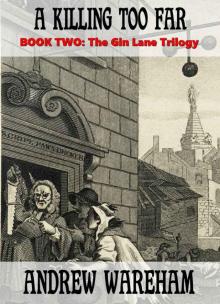 A Killing Too Far
A Killing Too Far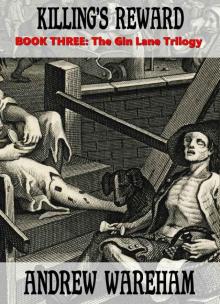 Killing's Reward
Killing's Reward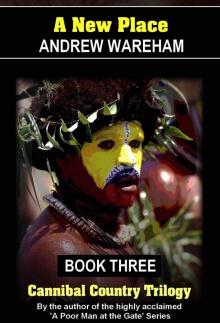 A New Place
A New Place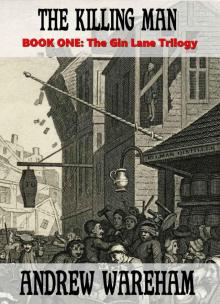 The Killing Man
The Killing Man Bold and Blooded
Bold and Blooded The Breaking Storm (Innocent No More Series, Book 2)
The Breaking Storm (Innocent No More Series, Book 2) Nobody’s Child
Nobody’s Child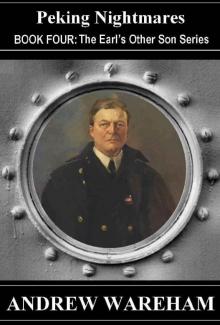 04 Peking Nightmares (The Earl’s Other Son Series, #4)
04 Peking Nightmares (The Earl’s Other Son Series, #4)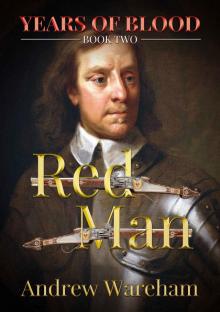 Red Man
Red Man Foreign Mud
Foreign Mud The Gathering Clouds (Innocent No More Series, Book 1)
The Gathering Clouds (Innocent No More Series, Book 1)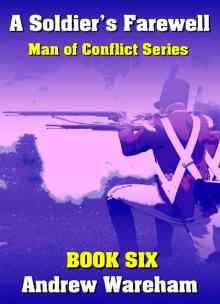 06 A Soldier’s Farewell (Man of Conflict #6)
06 A Soldier’s Farewell (Man of Conflict #6)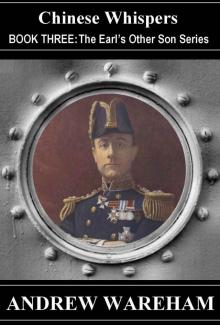 Chinese Whispers
Chinese Whispers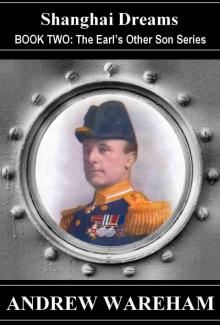 02 Shanghai Dreams (The Earl’s Other Son #2)
02 Shanghai Dreams (The Earl’s Other Son #2)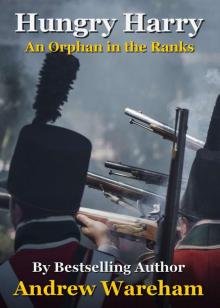 Hungry Harry: An Orphan in the Ranks
Hungry Harry: An Orphan in the Ranks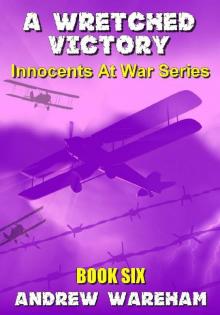 A Wretched Victory (Innocents At War Series, Book 6)
A Wretched Victory (Innocents At War Series, Book 6)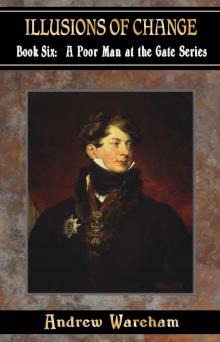 Illusions Of Change (A Poor Man at the Gate Series Book 6)
Illusions Of Change (A Poor Man at the Gate Series Book 6) The Wages Of Virtue (A Poor Man at the Gate Series, Book 8)
The Wages Of Virtue (A Poor Man at the Gate Series, Book 8)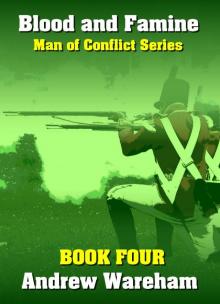 Blood and Famine (Man of Conflict Series, Book 4)
Blood and Famine (Man of Conflict Series, Book 4) The Friendly Sea (The Duty and Destiny Series, Book 1)
The Friendly Sea (The Duty and Destiny Series, Book 1)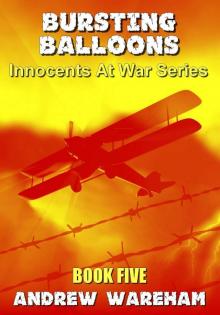 Bursting Balloons (Innocents At War Series, Book 5)
Bursting Balloons (Innocents At War Series, Book 5)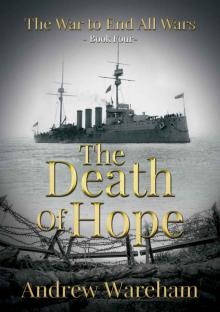 The Death of Hope
The Death of Hope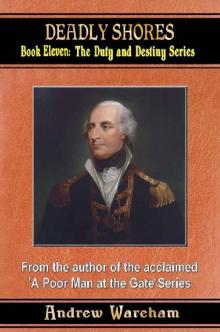 Deadly Shores (The Duty and Destiny Series, Book 11)
Deadly Shores (The Duty and Destiny Series, Book 11)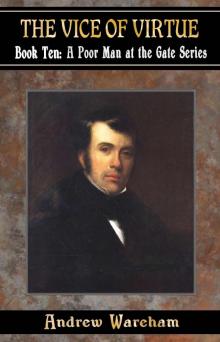 The Vice Of Virtue (A Poor Man At The Gate Series Book 10)
The Vice Of Virtue (A Poor Man At The Gate Series Book 10) Virtue’s Reward (A Poor Man at the Gate Series, Book 11)
Virtue’s Reward (A Poor Man at the Gate Series, Book 11)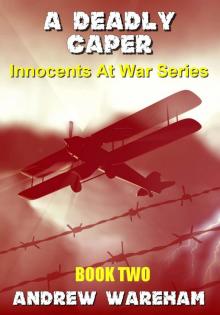 A Deadly Caper (Innocents At War Series, Book 2)
A Deadly Caper (Innocents At War Series, Book 2)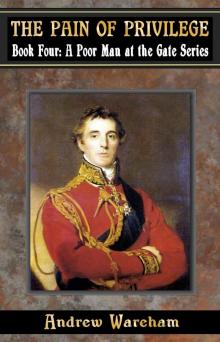 The Pain Of Privilege (A Poor Man at the Gate Series Book 4)
The Pain Of Privilege (A Poor Man at the Gate Series Book 4)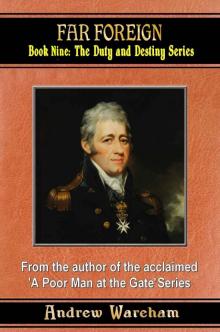 Far Foreign (The Duty and Destiny Series, Book 9)
Far Foreign (The Duty and Destiny Series, Book 9)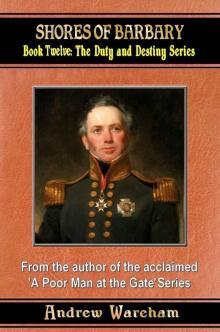 Shores of Barbary (The Duty and Destiny Series, Book 12)
Shores of Barbary (The Duty and Destiny Series, Book 12)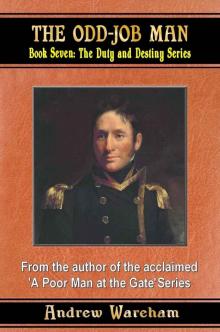 The Odd-Job Man (The Duty and Destiny Series, Book 7)
The Odd-Job Man (The Duty and Destiny Series, Book 7)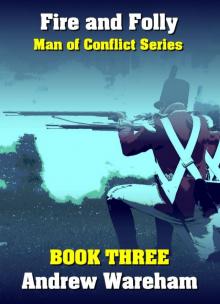 Fire and Folly (Man of Conflict Series Book 3)
Fire and Folly (Man of Conflict Series Book 3)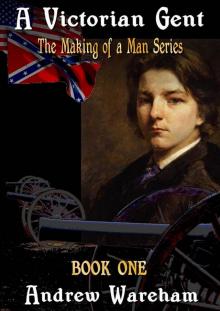 A Victorian Gent (The Making of a Man Series, Book 1)
A Victorian Gent (The Making of a Man Series, Book 1)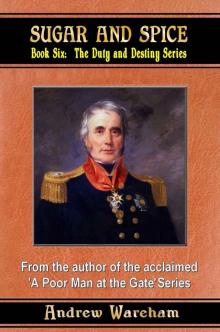 Sugar and Spice (The Duty and Destiny Series, Book 6)
Sugar and Spice (The Duty and Destiny Series, Book 6)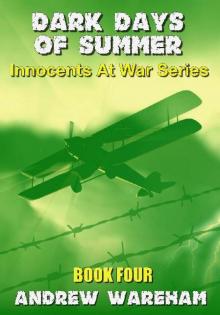 Dark Days Of Summer (Innocents At War Series, Book 4)
Dark Days Of Summer (Innocents At War Series, Book 4)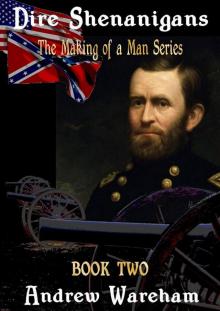 Dire Shenanigans (The Making of a Man Series, Book 2)
Dire Shenanigans (The Making of a Man Series, Book 2)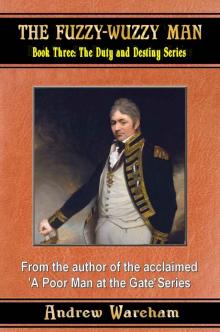 The Fuzzy-Wuzzy Man (The Duty and Destiny Series, Book 3)
The Fuzzy-Wuzzy Man (The Duty and Destiny Series, Book 3) Privilege Preserved (A Poor Man at the Gate Series Book 5)
Privilege Preserved (A Poor Man at the Gate Series Book 5)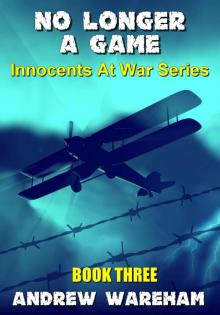 No Longer A Game (Innocents At War Series, Book 3)
No Longer A Game (Innocents At War Series, Book 3)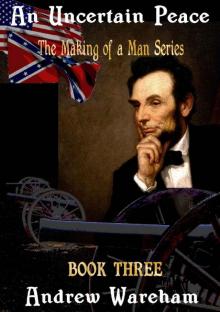 An Uncertain Peace (The Making of a Man Series, Book 3)
An Uncertain Peace (The Making of a Man Series, Book 3)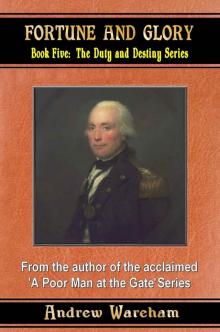 Fortune And Glory (The Duty and Destiny Series, Book 5)
Fortune And Glory (The Duty and Destiny Series, Book 5) The Old Order (A Poor Man at the Gate Series Book 7)
The Old Order (A Poor Man at the Gate Series Book 7) A Place Called Home (Cannibal Country Trilogy, Book 2)
A Place Called Home (Cannibal Country Trilogy, Book 2) Nouveau Riche (A Poor Man at the Gate Series, Book 2)
Nouveau Riche (A Poor Man at the Gate Series, Book 2)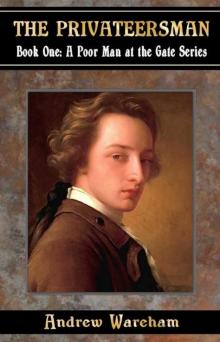 The Privateersman (A Poor Man at the Gate Series Book 1)
The Privateersman (A Poor Man at the Gate Series Book 1)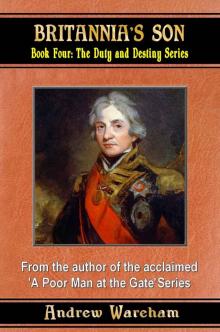 Britannia’s Son (The Duty and Destiny Series, Book 4)
Britannia’s Son (The Duty and Destiny Series, Book 4)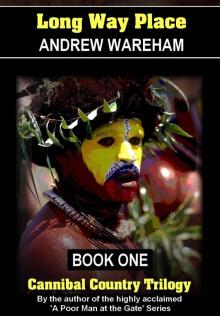 Long Way Place (Cannibal Country Trilogy, Book 1)
Long Way Place (Cannibal Country Trilogy, Book 1)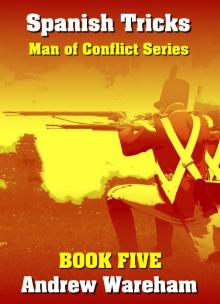 Spanish Tricks (Man of Conflict Series, Book 5)
Spanish Tricks (Man of Conflict Series, Book 5) A Parade Of Virtue (A Poor Man At The Gate Series Book 9)
A Parade Of Virtue (A Poor Man At The Gate Series Book 9)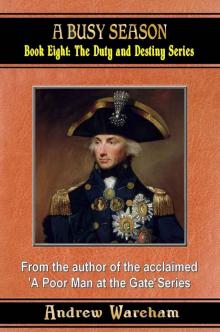 A Busy Season (The Duty and Destiny Series, Book 8)
A Busy Season (The Duty and Destiny Series, Book 8) Billy Bacon and the Soldier Slaves (Colonial Warrior Series, Book 1)
Billy Bacon and the Soldier Slaves (Colonial Warrior Series, Book 1) Raging Rajahs (Man of Conflict Series, Book 2)
Raging Rajahs (Man of Conflict Series, Book 2)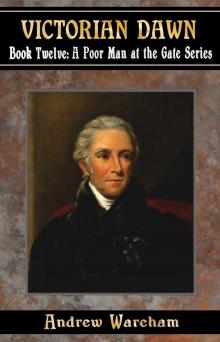 Victorian Dawn (A Poor Man at the Gate Series, Book 12)
Victorian Dawn (A Poor Man at the Gate Series, Book 12) Born To Privilege (A Poor Man at the Gate Series Book 3)
Born To Privilege (A Poor Man at the Gate Series Book 3)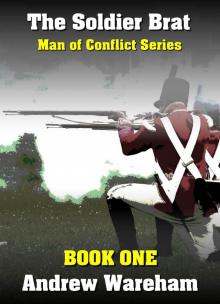 The Soldier Brat (Man of Conflict Series, Book 1)
The Soldier Brat (Man of Conflict Series, Book 1)